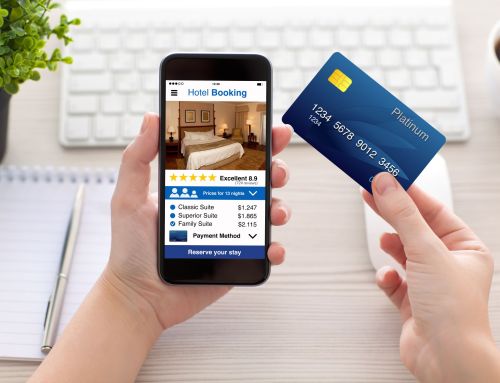In today’s competitive hospitality industry, personalizing the guest experience is a necessity rather than a luxury. Guest experience personalization tailors each stay to individual preferences, enhancing satisfaction, loyalty, and repeat business. This approach not only sets your hotel apart from competitors by offering a sense of exclusivity but also encourages guests to spend more on additional services and amenities.
In a competitive market, personalization can be the key factor in building a strong reputation and attracting new customers through positive word-of-mouth.
Strategies for Personalizing the Guest Experience
Personalizing the guest experience has become a key focus for hotels in today’s competitive hospitality industry. By leveraging technology, hotels can enhance guest interactions and deliver a truly personalized stay. Here are some strategies to consider:
Leveraging technology for personalized guest interactions: Technology plays a crucial role in personalizing the guest experience. With the help of a robust hotel property management system (PMS), hotels can collect and analyze guest data to understand their preferences and behavior. This data can then be used to tailor interactions and provide personalized recommendations and services. For example, a PMS can track guest preferences for room temperature, pillow type, or preferred amenities, allowing hotels to proactively meet their guests’ needs.
Customizing guest amenities and services: Another effective strategy is to customize guest amenities and services. By offering a range of options and allowing guests to choose what suits them best, hotels can create a more personalized experience. This could include options such as selecting preferred toiletries, room setup, or even personalized welcome messages. By providing these choices, hotels show that they value their guests’ preferences and are dedicated to creating a memorable stay.
Creating tailored experiences based on guest preferences: Understanding guest preferences is key to delivering tailored experiences. Hotels can use guest data to create personalized itineraries, recommend local attractions, or suggest dining options based on their guests’ interests. This can be achieved by integrating the PMS with other systems such as guest feedback platforms or loyalty programs. By curating experiences that align with guests’ preferences, hotels can enhance guest satisfaction and loyalty.
Best Practices for Guest Experience Personalization
Personalizing the guest experience is crucial for any hotel looking to stand out in a competitive market. By tailoring your services and offerings to individual guests, you can create a memorable and unique experience that will keep them coming back for more. Here are some best practices to help you personalize your hotel guest experience:
Using storytelling to enhance guest engagement: Storytelling is a powerful tool that can captivate your guests and create an emotional connection. By sharing the history and unique features of your hotel, you can engage guests on a deeper level. Consider incorporating storytelling elements into your website, social media posts, and even in-person interactions to create a memorable experience.
Utilizing guest feedback to improve personalization: Feedback from guests is a valuable resource for understanding their preferences and needs. Take the time to gather feedback through surveys, reviews, and conversations. Use this information to tailor your services, amenities, and overall guest experience. By actively listening to your guests, you can continuously improve and exceed their expectations.
Building long-term relationships through personalized experiences: Personalization is not just about the immediate guest experience but also about building long-term relationships. By remembering guest preferences, such as room types, amenities, or dietary restrictions, you can create a sense of familiarity and make guests feel valued. Use guest data to anticipate their needs and surprise them with personalized touches during their stay.
Delivering a Seamless Personalized Experience
Personalization is key to delivering an exceptional guest experience in the hospitality industry. By tailoring your services to meet the specific needs and preferences of each guest, you can create a memorable stay that sets your hotel apart from the competition. Here are three important factors to consider when implementing a personalized approach:
Integrating personalization across guest touchpoints: To provide a seamless personalized experience, it’s essential to integrate personalization efforts across all guest touchpoints. This includes everything from the initial booking process to check-in, room service, and post-stay communication. By collecting and analyzing guest data, you can identify their preferences and tailor your offerings accordingly. For example, if a guest frequently orders room service, you can proactively suggest their favorite dishes or offer personalized promotions.
Ensuring privacy and data security in personalization efforts: While personalization relies on guest data, it’s crucial to prioritize privacy and data security. Implement robust data protection measures and ensure compliance with relevant regulations, such as the General Data Protection Regulation (GDPR). Be transparent with guests about the data you collect and how it will be used, gaining their trust and confidence in your personalization efforts.
Adapting personalization strategies to evolving guest expectations: As guest expectations evolve, it’s important to adapt your personalization strategies accordingly. Regularly assess and analyze guest feedback to understand their changing preferences and needs. Embrace emerging technologies, such as artificial intelligence and machine learning, to automate and enhance the personalization process. By staying ahead of the curve, you can continue to provide a personalized experience that exceeds guest expectations.
The Future of Personalized Guest Experiences
In today’s digital age, the hotel industry is focusing on personalized guest experiences by leveraging emerging technologies. AI, machine learning, and data analytics enable hotels to understand guests better and offer tailored services, such as AI-powered chatbots that provide personalized recommendations.
The Internet of Things (IoT) also plays a key role, with devices like smart thermostats and mirrors enhancing personalization based on guest preferences. As personalization becomes a growing expectation, hotels adopting these technologies will stand out, while those that don’t risk losing guests to more innovative competitors.
The future of personalized hospitality looks promising, with technologies like facial recognition and virtual reality further enhancing guest experiences. By embracing these trends, hotels can create unforgettable stays that encourage repeat visits.
At SkyTouch Technology, we understand the importance of personalization in the hotel industry. Our innovative hotel management platform empowers you to seamlessly integrate personalization efforts across all guest touchpoints while ensuring data privacy and security. Contact us today to learn more about how our technology can help you deliver a truly personalized guest experience.





